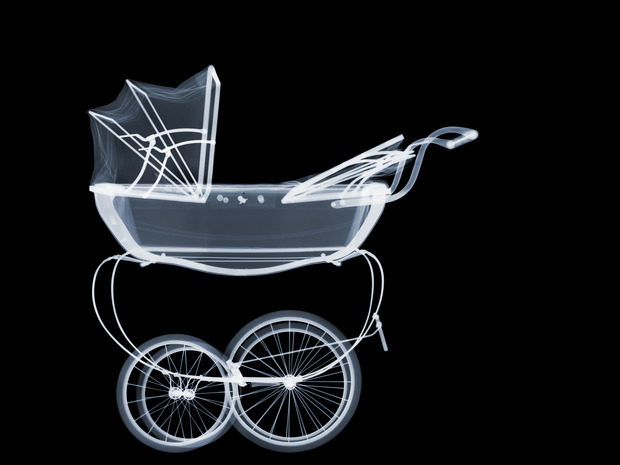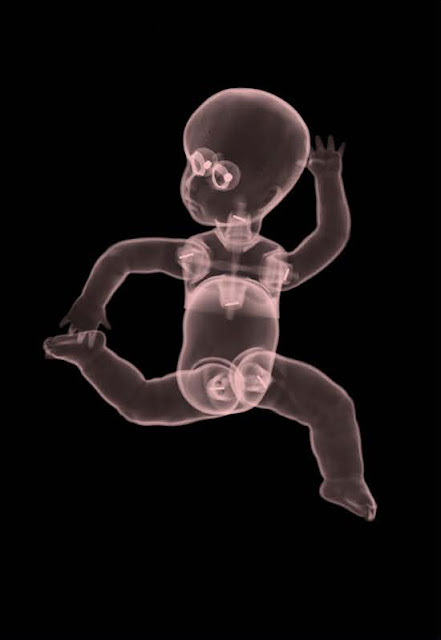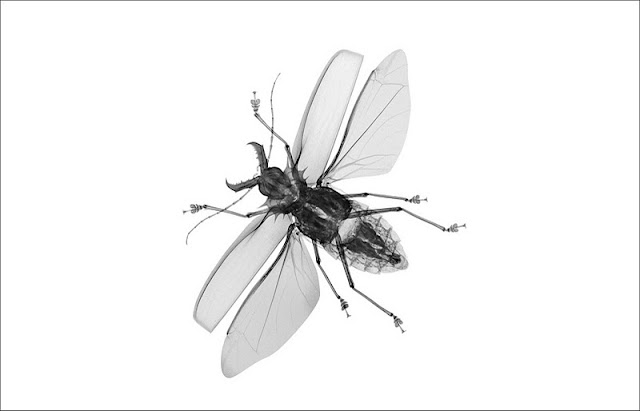Nick Veasey is a London-born former advertising photographer who hit on the idea of using X-rays while photographing props for a television show. He is the recipient of many photographic and design awards including IPA Lucie Awards, AOP, Graphis, Communication Arts, Applied Arts, PX3 and awards from the D&AD also being nominated for the IPA Lucie International Photographer of the Year 2008.
Veasey claims to be responsible for realising possibly the largest X-ray to date, a life size Boeing 777 jet that required over 500 separate x-rays of individual elements. He is currently building his own $200,000 studio with 35-inch-thick, lead-lined concrete walls.
"I'm interested in how things work, and x-rays show what's happening under the surface," he says. "Plus, they look cool!" To get his pictures, Veasey uses industrial x-ray machines typically employed in art restoration (to examine oil paintings), electronics manufacturing (to inspect circuit boards), and the military (to check tanks for stress fractures).
"I like to challenge the automatic way in which we react to external physical appearance by highlighting the often surprising inner beauty of things," ~ Nick Veasey
Working with high doses of radiation isn't always easy. To minimize a patient's radiation exposure, medical x-ray techs grab their blurry stills in a fraction of a second; Veasey needs to bombard his subjects with ionizing radiation for as long as 12 minutes to get crisp shots. So to capture human forms, Veasey works with either skeletons in rubber suits (normally used to train radiologists) or cadavers that have been donated to science. When a corpse becomes available, he has at most eight hours to pose and shoot before rigor mortis sets in.
Veasey claims to be responsible for realising possibly the largest X-ray to date, a life size Boeing 777 jet that required over 500 separate x-rays of individual elements. He is currently building his own $200,000 studio with 35-inch-thick, lead-lined concrete walls.
"I'm interested in how things work, and x-rays show what's happening under the surface," he says. "Plus, they look cool!" To get his pictures, Veasey uses industrial x-ray machines typically employed in art restoration (to examine oil paintings), electronics manufacturing (to inspect circuit boards), and the military (to check tanks for stress fractures).
"I like to challenge the automatic way in which we react to external physical appearance by highlighting the often surprising inner beauty of things," ~ Nick Veasey
Working with high doses of radiation isn't always easy. To minimize a patient's radiation exposure, medical x-ray techs grab their blurry stills in a fraction of a second; Veasey needs to bombard his subjects with ionizing radiation for as long as 12 minutes to get crisp shots. So to capture human forms, Veasey works with either skeletons in rubber suits (normally used to train radiologists) or cadavers that have been donated to science. When a corpse becomes available, he has at most eight hours to pose and shoot before rigor mortis sets in.












































No comments:
Post a Comment